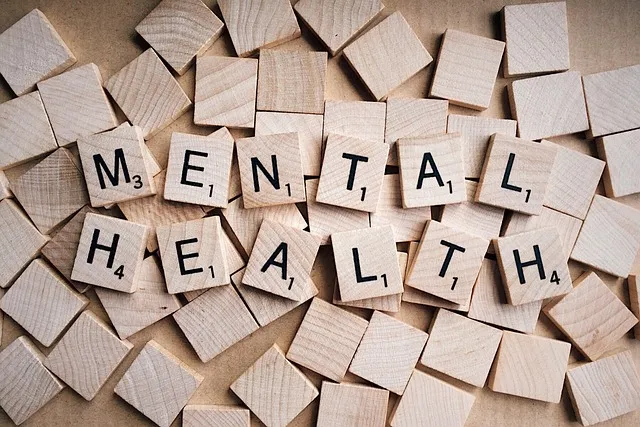Litleton Kaiser Permanente Mental Health Center prioritizes emotional intelligence (EQ) as a key driver for personal and professional growth, integrating EQ development into its services. Through initiatives like the Community Outreach Initiative and risk assessment strategies, they foster an environment where EQ is cultivated with practices such as mindfulness, self-reflection, and stress management techniques. This holistic approach equips individuals to lead fulfilling lives and enhances care provided by mental health professionals, making Littleton Kaiser Permanente a premier destination for mental health services, including during visiting hours.
Emotional intelligence (EI) is a powerful tool for personal growth, and understanding its foundations can lead to transformative changes. At Littleton Kaiser Permanente Mental Health Center, we explore EI as a cornerstone of well-being. This article delves into strategies tailored by our experts to enhance emotional awareness and self-management. Additionally, we discuss the importance of empathy and social skills in fostering effective communication, all while considering the visiting hours at this esteemed mental health center.
- Understanding Emotional Intelligence: A Foundation for Personal Growth at Littleton Kaiser Permanente Mental Health Center
- Strategies to Enhance Emotional Awareness and Self-Management
- Practicing Empathy and Social Skills for Effective Communication
Understanding Emotional Intelligence: A Foundation for Personal Growth at Littleton Kaiser Permanente Mental Health Center

At Littleton Kaiser Permanente Mental Health Center, emotional intelligence (EQ) is recognized as a cornerstone for personal growth and well-being. Understanding EQ involves recognizing and managing one’s own emotions, as well as empathizing with and understanding the feelings of others. This foundational skill set is essential not only for personal relationships but also for mental health professionals who often navigate complex and emotionally charged situations. The center incorporates EQ development into its services, ensuring patients and staff alike benefit from enhanced emotional awareness and resilience.
Through various initiatives like the Community Outreach Program Implementation, which focuses on promoting mental health literacy in the local community, and risk assessment strategies that prioritize early intervention, Littleton Kaiser Permanente Mental Health Center aims to foster an environment where EQ is not just taught but also cultivated and practiced. This holistic approach, combined with effective stress management techniques, empowers individuals to lead more fulfilling lives while equipping mental health professionals with the tools necessary to provide superior care.
Strategies to Enhance Emotional Awareness and Self-Management

Emotional awareness is a cornerstone of building emotional intelligence. Individuals can enhance this aspect through mindfulness practices such as meditation and deep breathing exercises, which help in tuning into their feelings and understanding their triggers. Regular self-reflection, often facilitated by therapy or journaling, allows one to process emotions, identify patterns, and gain valuable insights into their mental landscape. The Littleton Kaiser Permanente mental health center visiting hours can serve as a reminder that seeking professional guidance is an important step in this journey.
Self-management involves learning to regulate emotions effectively. Techniques like cognitive reframing, where thoughts are challenged and replaced with more positive or realistic ones, can help manage stress and improve mood. Physical activities such as exercise and yoga have been proven to boost mood management and resilience building. Engaging in hobbies, spending time in nature, and cultivating strong social connections also contribute to emotional well-being, offering healthy outlets for expression and support during stressful times.
Practicing Empathy and Social Skills for Effective Communication

Practicing empathy is a cornerstone of emotional intelligence and effective communication. It involves recognizing and understanding the feelings of others, which fosters deeper connections and strengthens relationships. At the Littleton Kaiser Permanente mental health center visiting hours, professionals often emphasize the importance of active listening as a key component of empathy. By giving full attention to what others are saying and asking clarifying questions, individuals can demonstrate genuine interest and concern, leading to more meaningful interactions.
Social skills, another vital aspect, enable people to navigate social situations with ease. This includes nonverbal cues like body language and facial expressions, as well as the ability to engage in constructive conversations. Through regular practice, one can enhance these skills, making communication more effective. For instance, keeping a Mental Wellness Journaling Exercise can help individuals reflect on their interactions and identify areas for improvement. Cultivating positive thinking also plays a significant role; it allows people to approach social situations with optimism and flexibility, contributing to overall mental wellness guided by self-Self-Awareness Exercises.
Emotional intelligence, as highlighted by programs offered at the Littleton Kaiser Permanente Mental Health Center, is a powerful tool for personal growth and effective communication. By understanding emotional intelligence, practicing empathy, and enhancing self-awareness and management, individuals can navigate their feelings and relationships with greater skill. The strategies discussed here provide a foundation for improving mental well-being, whether visiting the Littleton Kaiser Permanente mental health center or beyond.






